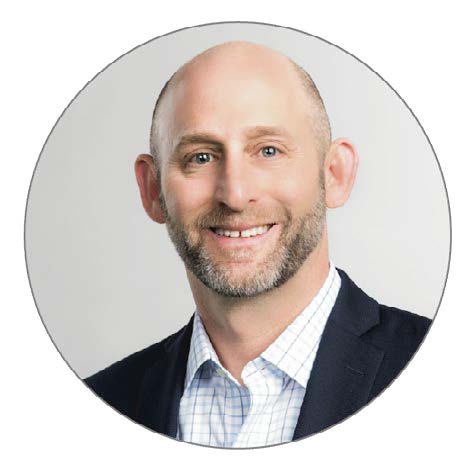Funding Longevity Roundtable
January 17, 2020 | Stanford University
We face significant challenges to Americans’ financial security. Millions of Boomers are approaching their retirement years with modest savings, and often with high debt. Benefit cutbacks in Social Security are projected in a little more than 10 years if Congress doesn’t take actions to bolster the program’s finances. Many of the experts we interviewed think it’s better to address these challenges sooner rather than later. We aim to inspire and inform leadership to address these challenges.
Purpose of the Meeting
- Present a prototype Evaluation Framework to help policymakers evaluate proposals to improve retirement security
- Discuss promising ideas and proposals
- Share feedback on the prototype Evaluation Framework
- Discuss possible next steps
Speakers
Andrew G. Biggs
 Andrew G. Biggs is a resident scholar at the American Enterprise Institute (AEI), where his work focuses on retirement income policy. Before joining AEI, Biggs was the principal deputy commissioner of the Social Security Administration, where he also served as deputy commissioner for policy. In 2001 he was on the staff of President Bush’s Commission to Strengthen Social Security and in 2005 he worked on Social Security reform at the White House National Economic Council. In 2013, the Society of Actuaries appointed Biggs co-vice chair of a Blue Ribbon Panel on public pension underfunding. In 2014, Institutional Investor Magazine named him one of the 40 most influential people in the retirement world. In 2016, he was appointed by President Obama to be a member of the Financial Oversight and Management Board for Puerto Rico. Biggs holds a bachelor’s degree from Queen’s University Belfast in Northern Ireland, master’s degrees from Cambridge University and the University of London, and a Ph.D. from the London School of Economics.
Andrew G. Biggs is a resident scholar at the American Enterprise Institute (AEI), where his work focuses on retirement income policy. Before joining AEI, Biggs was the principal deputy commissioner of the Social Security Administration, where he also served as deputy commissioner for policy. In 2001 he was on the staff of President Bush’s Commission to Strengthen Social Security and in 2005 he worked on Social Security reform at the White House National Economic Council. In 2013, the Society of Actuaries appointed Biggs co-vice chair of a Blue Ribbon Panel on public pension underfunding. In 2014, Institutional Investor Magazine named him one of the 40 most influential people in the retirement world. In 2016, he was appointed by President Obama to be a member of the Financial Oversight and Management Board for Puerto Rico. Biggs holds a bachelor’s degree from Queen’s University Belfast in Northern Ireland, master’s degrees from Cambridge University and the University of London, and a Ph.D. from the London School of Economics.
Elizabeth Kelly

Elizabeth Kelly serves as SVP of Growth for United Income from Capital One. United Income uses new technology to provide holistic financial planning and investment management to people nearing or entering retirement, and sold to Capital One in July 2019. Prior to joining United Income, Elizabeth served as Special Assistant to the President at the White House National Economic Council, where she led White House engagement with federal agencies and external partners to develop and execute the President’s retirement security and financial inclusion agendas. In this capacity, she coordinated the development, rollout, and defense of major rules and guidance, including the fiduciary (“conflict of interest”) rule and Military Lending Act rules closing prior loopholes to cap loans to service members at 36% APR. Earlier in her career, Elizabeth worked at the U.S. Department of Housing and Urban Development and as a law clerk to Judge Stephen A. Higginson on the U.S. Court of Appeals for the Fifth Circuit. Elizabeth holds a J.D. from Yale Law School, an MSc in Comparative Social Policy from the University of Oxford, and a B.A. from Duke University.
J. Mark Iwry

Mark Iwry [“Eevry”] served as Senior Advisor to the Secretary of the Treasury for retirement and health policy from 2009 to January 2017, with responsibility for national policy, legislation, and regulation relating to pensions, retirement, and saving. He currently is a Nonresident Senior Fellow at the Brookings Institution, a Visiting Scholar at the Wharton School at the University of Pennsylvania, and advises numerous nonprofit, academic, for-profit, and other organizations. Mark previously served as the Benefits Tax Counsel at Treasury, a Research Professor at Georgetown University, a partner in the law firm of Covington & Burling, and Of Counsel to the law firm of Sullivan & Cromwell. He has testified before Congress on 27 occasions, has provided policy advice to many Members of Congress and their staff (Democrats and Republicans), as well as five Presidential campaigns, and has served as an expert witness in federal court litigatio
Mark has been the author or one of the leading architects or drivers of numerous retirement policy initiatives and reforms, including automatic enrollment in 401(k)s and other plans, the Pension Protection Act of 2006 auto-enrollment provisions, the SIMPLE-IRA plan (used by 3 to 4 million new savers), the Saver’s Credit (claimed annually by nearly 9 million taxpayers), the federal automatic rollovers to IRAs of plan balances up to $5,000, the new plan startup tax credit for small businesses, payroll deposit IRAs, direct deposit of income tax refunds into IRAs and US savings bonds, and rollback of the “use it or lose it” rule for health FSAs. In addition to numerous awards and recognitions for outstanding leadership, innovation, and contributions to retirement security, to the nation’s private pension and health care systems, and to the nation’s tax system, he has been recognized in the media as one of the world’s “30 top financial players” 20 individuals expected to have a major influence on the financial services industry, number 3 nationally among the “100 most influential people in 401(k)”, etc. He graduated from Harvard College, Harvard Law School, and Harvard’s Kennedy School of Government.
Gary Koenig
 Gary Koenig is Vice President of Financial Security in the AARP Public Policy Institute, where he leads a team of policy experts working on economic, finance, and consumer issues important to individuals age 50+. He also leads the development of AARP’s strategy on savings and financial planning. Gary has been working on financial security issues for more than 20 years. His work focuses on Social Security, retirement savings, tax and budget policy, and the economic well-being of older Americans. Prior to joining AARP in 2008, Gary was an economist for the Congressional Joint Committee on Taxation, where he specialized in employer-provided pensions and retirement plans.
Gary Koenig is Vice President of Financial Security in the AARP Public Policy Institute, where he leads a team of policy experts working on economic, finance, and consumer issues important to individuals age 50+. He also leads the development of AARP’s strategy on savings and financial planning. Gary has been working on financial security issues for more than 20 years. His work focuses on Social Security, retirement savings, tax and budget policy, and the economic well-being of older Americans. Prior to joining AARP in 2008, Gary was an economist for the Congressional Joint Committee on Taxation, where he specialized in employer-provided pensions and retirement plans.
In 2017, together with colleagues from the Brookings Institution and John Hopkins School of Advanced International Studies, Gary developed the idea of Supplemental Transition Accounts for Retirement, an innovative proposal to increase retirement income and improve Social Security. MarketWatch, Journal of Retirement, and Investment News have profiled this proposal. Gary is a member of the National Academy of Social Insurance and serves as a board member for the Employee Benefit Research Institute.
Annamaria Lusardi

Annamaria Lusardi is the Denit Trust Endowed Chair of Economics and Accountancy at the George Washington University School of Business (GWSB). Moreover, she is the founder and academic director of GWSB’s Global Financial Literacy Excellence Center. She has also taught at Dartmouth College, Princeton University, the University of Chicago Harris School of Public Policy, the University of Chicago Booth School of Business, and Columbia Business School. From January to June 2008, she was a visiting scholar at Harvard Business School. She holds a Ph.D. in Economics from Princeton University.
Dr. Lusardi has won numerous research and other awards. The more recent ones include delivering the Kahneman Lecture at the 2019 meeting of Economic Psychology and Behavioral Economics, the 2018 Ketchum Prize from FINRA Investor Education Foundation, the 2017 Skandia Research Award on Long-Term Savings (awarded in Sweden), the 2015 Financial Literacy Award from the International Federation of Finance Museums (awarded in China), and the 2013 William E. Odom Visionary Leadership Award. In 2018, she received an honorary degree of Doctor of Science (Economics and Business Administration) from the University of Vaasa in Finland. Since 2017, she serves as Director of the Italian Financial Education Committee in charge of designing a national strategy for financial literacy in Italy.
Annamaria Lusardi

Ric Edelman is the Founder of Edelman Financial Engines. He is one of the most influential people in the financial planning and investment management profession, according to three leading trade publications: Investment Advisor, RIABiz and InvestmentNews. He was ranked three times as the nation’s #1 Independent Financial Advisor by Barron’s and among the Top 10 Wealth Advisors by Forbes. He was inducted into Research magazine’s Financial Advisor Hall of Fame in 2004 and into Barron’s Hall of Fame in 2019. In 2017, Ric received the IARFC’s Lifetime Achievement Award.
Ric is a Distinguished Lecturer at Rowan University, award-winning host of the longest-running radio show on personal finance in the country, producer of award-winning specials for Public Television, and a #1 New York Times bestselling author of 10 books on personal finance.
Ron Lee

Ron Lee is an economic demographer (Berkeley MA, Harvard PhD) who taught in the departments of Demography and Economics at Berkeley from 1979-2014, and now does research on macroeconomic consequences of population aging. From 2010-2015 he co-chaired a National Academy of Sciences Committee on the Long-run Macroeconomic Effects of the Aging U.S. Population. He also continues to work on modeling and forecasting demographic variables including mortality, and on evolutionary biodemography and life history theory. He is the Founding Director of the Center for Economics and Demography of Aging (CEDA) and founding co-Director of National Transfer Accounts (NTA). He is an elected member of National Academy of Sciences and four other honorary societies.

